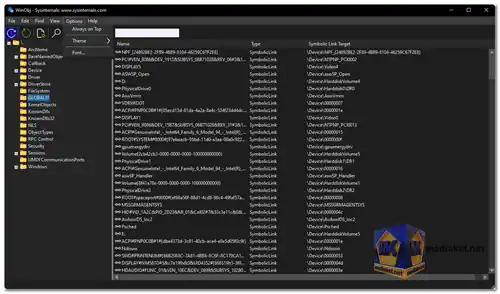Microsoft Sysinternals Suite is a collection of various system utilities and tools developed by Microsoft's Windows Sysinternals team. These tools are designed to help IT professionals, system administrators, and advanced users troubleshoot, diagnose, and monitor Windows operating systems and applications...
The suite includes over 70 tools, covering a wide range of tasks, such as:
Process monitoring.
Registry analysis.
File system auditing.
Network troubleshooting.
Process debugging.
Memory management.
Performance tuning.
Security analysis.
The Sysinternals Suite is a valuable resource for anyone who needs to delve into the inner workings of Windows. The tools are easy to use and can be used to quickly identify and resolve problems.
Here are some of the most popular Sysinternals tools:
Process Explorer: This tool provides a detailed view of all running processes, including their memory usage, CPU usage, and open files.
Process Monitor: This tool monitors all file system, registry, process, thread, and DLL activity in real time.
Sysmon: This tool monitors Windows system events for suspicious activity.
Autoruns: This tool shows you what programs are configured to start automatically when your computer boots up.
PsTools: This collection of command-line tools can be used to perform a variety of tasks, such as managing processes, viewing the registry, and executing remote commands.
The Sysinternals Suite is a valuable resource for anyone who needs to troubleshoot, monitor, or manage Windows systems. The tools are easy to use and can be used to quickly identify and resolve problems.
Here are some of the ways to use Windows Sysinternals:
To troubleshoot a performance problem, you can use Process Explorer to identify which processes are using the most CPU or memory.
To investigate a security incident, you can use Sysmon to track suspicious system events.
To manage your startup programs, you can use Autoruns to see what programs are configured to start automatically when your computer boots up.
To troubleshoot a network problem, you can use TCPView to see which processes are listening on network ports.
The Sysinternals Suite is a powerful toolset that can be used to solve a wide range of problems. If you're an IT professional or developer, We highly recommend checking it out.
Here are some of the pros of using the Sysinternals Suite:
Powerful System Troubleshooting: The Sysinternals tools provide detailed insights into various aspects of the Windows system, including processes, file system activity, registry changes, network connections, and more. This level of granularity can help diagnose and troubleshoot complex system issues effectively.
Free and Officially Supported: The Sysinternals Suite is freely available from Microsoft's official website. Being developed and maintained by Microsoft's Windows Sysinternals team, users can trust the tools' reliability and compatibility with Windows.
Comprehensive Toolset: The suite includes a wide variety of tools, each targeting specific aspects of system analysis and management. Whether it's understanding CPU usage, managing startup items, tracking registry changes, or dealing with virtualization, there's likely a tool to assist with the task.
No Installation Required: Most of the Sysinternals tools are portable, meaning they can be executed without installation. This feature is particularly useful for situations where installing software on a system is not feasible or allowed.
Remote System Management: The PsTools component of the suite enables administrators to perform various tasks on remote systems, streamlining the management of networked machines.
Overall, the Microsoft Sysinternals Suite is a valuable resource for IT professionals and developers who need to troubleshoot, monitor, and manage Windows systems. The tools are easy to use and can be used to quickly identify and resolve problems.
Microsoft SysInternals Suite - Changelog.
Download SysInternals Suite:
Size: 50.43 MB

